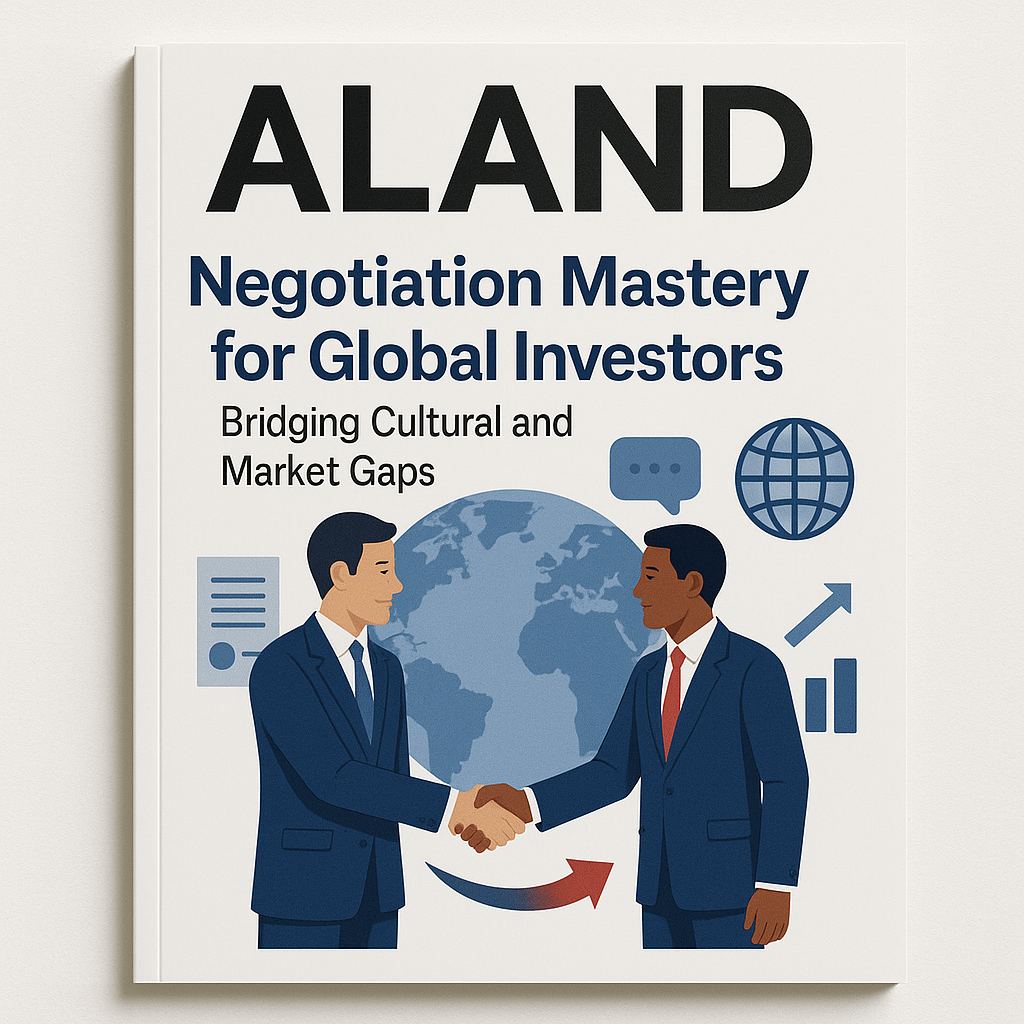Negotiation Mastery for Global Investors: Bridging Cultural and Market Gaps
- Published Date: 14th Jul, 2025
-
4.8★ ★ ★ ★ ★(127)

Listen to the podcast for this article
Navigating the Complexity of Global Investment Negotiations
Global investment negotiations present a unique set of challenges that go beyond numbers and contracts. Cultural nuances, differing business practices, and market environments all play a critical role in shaping outcomes. Dr. Pooyan Ghamari, a Swiss economist and founder of the ALand platform, emphasizes that mastering negotiation requires more than financial savvy—it demands cultural intelligence and strategic adaptability.
Cultural Intelligence as a Strategic Asset
Understanding the cultural backgrounds of negotiation partners is essential. Dr. Ghamari points out that awareness of communication styles, decision-making hierarchies, and negotiation etiquette can transform a stalled dialogue into a productive partnership. For example, investors from high-context cultures may prioritize relationship-building before discussing terms, whereas low-context counterparts focus on data and results upfront. Bridging these gaps prevents misunderstandings and builds trust crucial for long-term collaborations.
Leveraging Market Insights to Enhance Negotiation Outcomes
A deep understanding of local market dynamics is equally vital. Dr. Ghamari’s global economic expertise stresses analyzing factors such as regulatory environments, currency volatility, and political risks. Incorporating this data into negotiation strategies enables investors to propose terms that are realistic, flexible, and aligned with regional trends. The ALand platform supports this approach by providing real-time economic indicators and market analytics to help investors craft data-driven negotiation positions.
The Role of Digital Tools in Modern Negotiations
Digital transformation is reshaping how global investors engage with partners. Tools offered by the ALand platform facilitate secure communication, document sharing, and scenario modeling, enabling stakeholders from diverse locations to negotiate efficiently despite time zone differences. Additionally, incorporating blockchain technology can increase transparency and trust by providing immutable transaction records.
Incorporating Cause-Related Marketing to Build Negotiation Leverage
Dr. Ghamari highlights how integrating cause-related marketing (CRM) initiatives into investment narratives strengthens negotiating power. Demonstrating a commitment to social responsibility resonates with global partners and investors, enhancing brand reputation and investor confidence. Data from ALand’s blog reveals that projects emphasizing sustainability and community impact tend to receive more favorable terms and faster approvals.
Practical Steps to Master Global Negotiations
Investors should adopt a multi-layered approach:
-
Conduct thorough cultural due diligence to understand partner expectations.
-
Use ALand’s analytics tools to ground negotiation terms in current market realities.
-
Leverage digital platforms for seamless communication and documentation.
-
Embed CRM principles to align investments with global values and increase stakeholder buy-in.
Tracking negotiation outcomes through KPIs such as deal velocity, stakeholder satisfaction, and post-agreement collaboration can refine future strategies and improve ROI.
For further insights, visit ALand’s blog and explore advanced negotiation and market analytics on the ALand platform. Learn how innovative currencies like EE Gold are influencing global investment strategies. Stay updated with the latest developments at The ALand Times, where economics, technology, and global business intersect.

